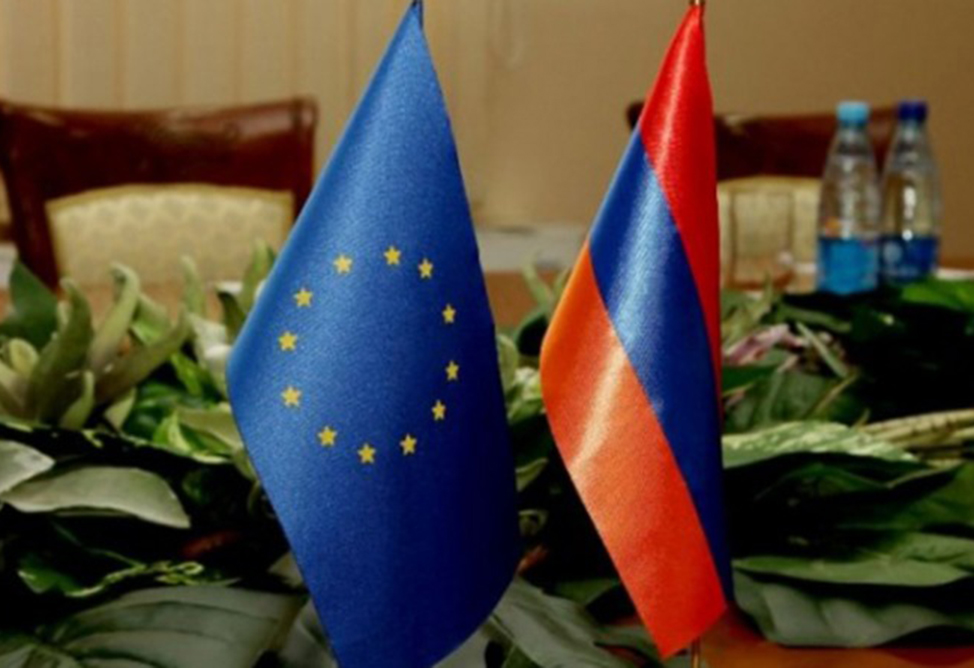Armenia’s financial system one of best developed in the commonwealth
06.03.2013,
17:01
Exclusive interview of director of Eurasian Development Bank (EDB) Yerevan office Sergey IGNATOV to ARKA Agency

Exclusive interview of director of Eurasian Development Bank (EDB) Yerevan office Sergey IGNATOV to ARKA Agency
ARKA: What are EDB’s projections of Armenia’s macroeconomic development for 2013 bearing in mind the current global economic situation and WB’s and IMF’s global GDP decline estimates for 2013-2014?
Ignatov: In 2013, amid lasting weakness in the global economy, and the European economy in particular (45% of Armenian exports as per 2011), Armenia’s economic growth should be expected to slow down. According to the consensus-forecast that includes the estimates of IMF, WB and EBRD, Armenia’s GDP is to stand at 4.6% in 2013. The economy will slow down if foreign demand weakens and metal prices reduce.
Changing demand and export prices will have a direct impact on export-oriented sectors of mining and processing industries, as well as on export and fiscal revenues and macroeconomic stability in Armenia. On the other hand, global economic weakness may affect also economies of countries that are the main source of money transfers and direct foreign investments. Hence, an additional risk exists that domestic demand may weaken, both in terms of consumer demand spurred by money transfers and investment demand that has remained low since the 2009 crisis.
ARKA: What was EDB’s investment portfolio in Armenia as of the end of 2012? What investments are planned for Armenia in 2013, and which sectors of the Armenian economy the bank has prioritized and considered attractive for now and up to 2015?
Ignatov: EDB’s investment portfolio in Armenia reached 109mln USD by the end of 2012, including the redeemed projects. The current portfolio is 79mln dollars that includes projects on SME financing and microfinance in a form of target credit lines to financial institutions.
Currently the bank is considering several projects in agriculture, mining, transport infrastructure and other sectors.
ARKA: How do you assess the investment climate in Armenia and expected investments in the projects currently implemented in the republic?
Ignatov: The investment climate of Armenia is one of the most favorable among the Bank’s member states. It is due to a pretty stable macroeconomic situation, relatively high GDP growth at low inflation rates, AMD strengthening and some other macroeconomic factors. Armenia’s financial system advances at one of the best rate in the CIS due to the strict banking control policy conducted by the Central Bank, a single credit register, commitment to the best world experience and relatively small market size.
In the last rating of Doing Business, Armenia improved its positions inching up from 50th to 32nd place (for comparison: Kazakhstan ranked 49th, Russia—112th) as it advanced the indices in three most important categories: protection of investors, taxation, connection to electricity networks. Such business environment is considered to be one of the best among the Bank’s member states.
ARKA: Does EDB plan entering new segments of the Armenian economy, for example, the agro sector?
Ignatov: EDB is considering financing several large commercial projects in Armenia, including those in agro sector, mining, transport infrastructure and more.
ARKA: Today Armenia is actively implementing Strategic industrial policy targeted at export. Could you, please, assess the prospects of Armenia in this direction?
Ignatov: Export boost and its diversification through improving foreign competitiveness are one of the most important aspects for economic policy. Armenia mainly exports raw materials what increases the republic’s vulnerability to external shocks. The main priority of Armenia for the near future should remain the development of the republic’s export potential through designing export-oriented and import-substitution mechanisms.
It is also important to note that Armenia has high export potential in agro-industrial complex. This potential is partially realized in food industry. As to processing industry, Armenia should move up through the production-chain. However, the successful implementation of this industrial policy will be possible if the authorities are persistent and apply to a systematic approach to export development. The authorities should foster export boost supporting exporters, creating for them an appropriate institutional environment (business environment, transport infrastructure, legislature, foreign investments, etc.) as well as reducing the transport blockade, facilitating the access to the strategic markets of Russia, EU, etc.).
ARKA: EDB is actively cooperating with some Armenian banks in SME financing. Do you have any intentions to expand this cooperation considering SME as an important tool for economy development?
Ignatov: Currently, EDB finances two projects –SME support project and microlending. In 2012, new demanded products appeared which we were happy to offer: energy efficiency support and farmers support programs. This is a targeted financing of the banks for further lending to real sector enterprises that resolves the issues related to loan resources accessibility. –0-



